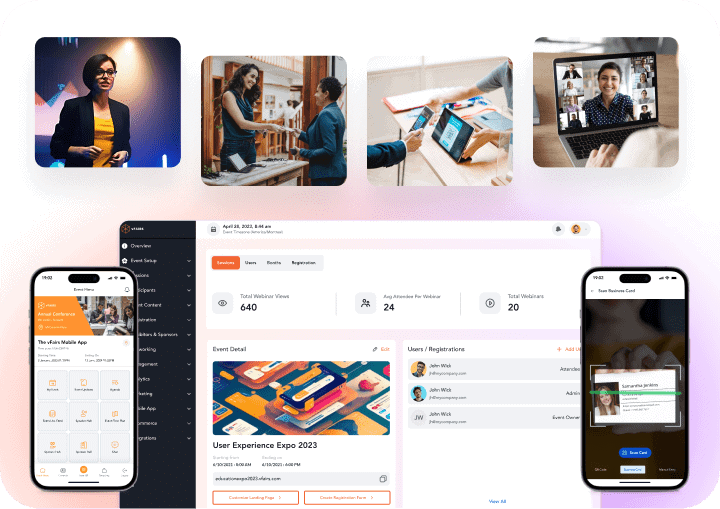How Tech is Driving Innovation at In-Person Events
2023 saw a return of in-person gatherings, marking a pivotal moment in events. As we dive into the current year, we're set to witness some exciting tr
Excited to host an amazing event with the vFairs app? So are we! Get started right away.
